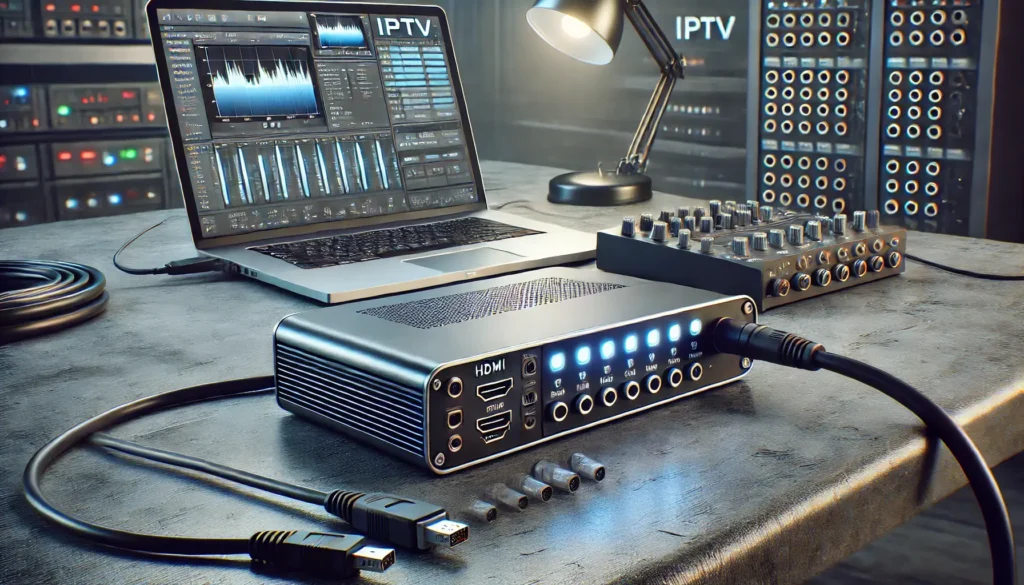IPTV Encoder


IPTV Encoder: The Backbone of High-Quality Streaming
In the world of Internet Protocol Television (IPTV), seamless streaming and high-quality content delivery rely heavily on an essential piece of technology: the IPTV encoder. This powerful tool plays a crucial role in converting video content into digital formats suitable for internet transmission. Whether you’re an IPTV provider, broadcaster, or tech enthusiast, understanding IPTV encoders is key to appreciating the magic behind modern streaming.
This article dives deep into the concept of IPTV encoders, their functions, types, benefits, and their role in shaping the future of digital entertainment.
What Is an IPTV Encoder?
An IPTV encoder is a device or software that converts raw video and audio signals into a digital format that can be streamed over the internet. This process, known as encoding, compresses the content into manageable sizes without compromising quality. Encoders are indispensable for IPTV services as they prepare the content for delivery to viewers on various devices, including TVs, smartphones, tablets, and computers.
How Does an IPTV Encoder Work?
The encoding process involves multiple stages:
Input Signal Acquisition
The encoder receives input signals from a camera, satellite feed, or other video sources.Compression
Using advanced compression algorithms like H.264 or H.265 (HEVC), the encoder reduces the file size while maintaining optimal video quality.Encoding
The compressed data is transformed into a format compatible with streaming protocols such as RTMP, HLS, or MPEG-DASH.Output Transmission
The encoded stream is transmitted to a content delivery network (CDN) or a server, making it accessible to viewers.
Types of IPTV Encoders
1. Hardware Encoders
Hardware encoders are physical devices specifically designed for video encoding. They are known for their:
- Reliability: Built for continuous operation.
- Low Latency: Ideal for live broadcasts.
- High Efficiency: Deliver exceptional performance with minimal resource usage.
Examples include:
- Teradek Vidiu Pro
- Haivision Makito X
2. Software Encoders
Software encoders run on general-purpose computers and are more versatile than their hardware counterparts. They offer:
- Flexibility: Easy to update and configure.
- Cost-Effectiveness: Lower initial investment.
- Scalability: Suitable for small to large-scale operations.
Popular software encoders include:
- OBS Studio (Open Broadcaster Software)
- vMix
- Wirecast
3. Cloud-Based Encoders
Cloud encoders operate online, providing encoding services without the need for physical hardware. These encoders are:
- Scalable: Handle varying workloads effortlessly.
- Accessible: Accessible from any location.
- Integrated: Often paired with CDNs for seamless streaming.
Top cloud encoding services include:
- AWS Elemental MediaConvert
- Wowza Streaming Cloud
Key Features to Look for in an IPTV Encoder
When selecting an IPTV encoder, consider the following features:
Encoding Format Support
Choose encoders supporting modern compression standards like H.264, H.265, and AV1 for efficient bandwidth usage.Multi-Bitrate Encoding
Ensure compatibility with adaptive bitrate streaming (ABR) to deliver content at varying quality levels based on viewer bandwidth.Low Latency
For live IPTV services, low latency is critical to delivering real-time content.Input/Output Options
Verify the encoder supports multiple input and output formats for compatibility with diverse video sources and delivery methods.Scalability
Opt for an encoder that can scale with your audience size and streaming demands.Ease of Use
User-friendly interfaces and straightforward configuration options are essential for smooth operation.
The Role of IPTV Encoders in Live Streaming
Live streaming has become an integral part of IPTV, and encoders are at the heart of this process. Here’s how they contribute:
1. Real-Time Encoding
Encoders process video signals in real-time, ensuring minimal delay between the event and the viewer.
2. Adaptive Bitrate Streaming
By encoding content at multiple bitrates, encoders enable adaptive streaming, ensuring viewers receive the best possible quality based on their internet connection.
3. Multi-Platform Delivery
Encoders prepare streams for delivery to various platforms, including web browsers, mobile apps, and Smart TVs.
Benefits of Using IPTV Encoders
Improved Streaming Quality
Encoders ensure high-quality video and audio delivery, enhancing the viewer experience.Bandwidth Optimization
By compressing video data, encoders reduce bandwidth usage without sacrificing quality.Device Compatibility
Encoders produce streams compatible with multiple devices and operating systems.Scalability
Encoders allow IPTV services to scale up as their audience grows, ensuring smooth content delivery during peak times.Cost Efficiency
Modern encoders balance performance and cost, making them accessible to IPTV providers of all sizes.
Challenges of IPTV Encoding
Despite their advantages, IPTV encoders face some challenges:
1. High Initial Cost
Hardware encoders can be expensive, especially for small providers.
2. Complexity
Configuring and maintaining encoders requires technical expertise.
3. Latency Issues
While encoders are designed for low latency, certain setups may still experience delays.
Future of IPTV Encoding
As technology advances, IPTV encoders are poised for significant improvements:
AI-Powered Encoding
Artificial intelligence will enhance encoding efficiency, delivering better quality at lower bitrates.5G Integration
The rollout of 5G networks will enable faster, more reliable streaming, supported by advanced encoders.Support for Emerging Codecs
New codecs like AV1 and VVC will become standard, offering superior compression and quality.Cloud Domination
Cloud-based encoders will dominate the market, providing scalable, on-demand solutions.
FAQs About IPTV Encoders
1. Do I need an encoder for IPTV?
Yes, if you’re streaming live TV or on-demand content, an encoder is essential to convert and compress video for internet transmission.
2. Can I use a software encoder for professional IPTV services?
Absolutely. Many professional-grade software encoders, such as Wirecast and vMix, offer features comparable to hardware encoders.
3. Are cloud-based encoders reliable?
Yes, cloud encoders are highly reliable and scalable, making them a popular choice for modern IPTV providers.
4. What’s the difference between encoding and transcoding?
Encoding converts raw video into a digital format, while transcoding modifies an already encoded file to fit specific requirements, such as resolution or bitrate.
Conclusion
The IPTV encoder is an indispensable component of the IPTV ecosystem, enabling providers to deliver high-quality, scalable, and efficient streaming services. Whether you’re a small IPTV provider or a large broadcaster, choosing the right encoder can significantly impact your service quality and viewer satisfaction.
As streaming technology evolves, IPTV encoders will continue to play a pivotal role in shaping the future of digital entertainment. Investing in the right encoding solution today ensures you’re well-prepared for the demands of tomorrow’s audience.

